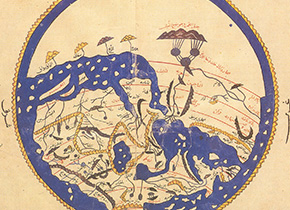
This article aims to tackle criticisms of Jim Al-Khalili’s work “The House of Wisdom: How Arabic Science Saved Ancient Knowledge and Gave Us the Renaissance.” Al-Khalili, recognized for his scientific communication, is not viewed as a historian of science. Two significant critiques highlight his perspective on the House of Wisdom’s reality, where he neglects contrary scholarly viewpoints, and his assertion regarding Ibn al-Haytham’s role in pioneering the scientific method, missing earlier influences such as Ptolemy.
The article suggests alternative readings due to a scarcity of thorough texts on Islamicate science, which encompass contributions from various religious and cultural backgrounds beyond just Muslims. Key recommendations include “Encyclopedia of the History of Arabic Science,” Stephen P. Blake’s “Astronomy and Astrology in the Islamic World,” and John M. Steele’s “A Brief Introduction to Astronomy in the Middle East.”
Blake’s work is extensive but contains some inaccuracies, especially in its chapter on European astronomy. Steele provides a wide-ranging, accessible view on Middle Eastern science, addressing Babylonian through Islamic astronomy. Ehsan Masood’s “Science and Islam: A History” targets a general readership, weaving in the historical backdrop against which Islamic science flourished.
J.L. Berggren’s “Episodes in the Mathematics of Medieval Islam” is suggested along with a more comprehensive history of alchemy by Lawrence M. Principe. Future readings include Donald R. Hill’s “Islamic Science and Engineering” and “Medieval Islamic Medicine” by Peter E. Pormann and Emilie Savage-Smith. The forthcoming “Routledge Handbook on the Sciences in Islamicate Societies” might offer refreshed insights.